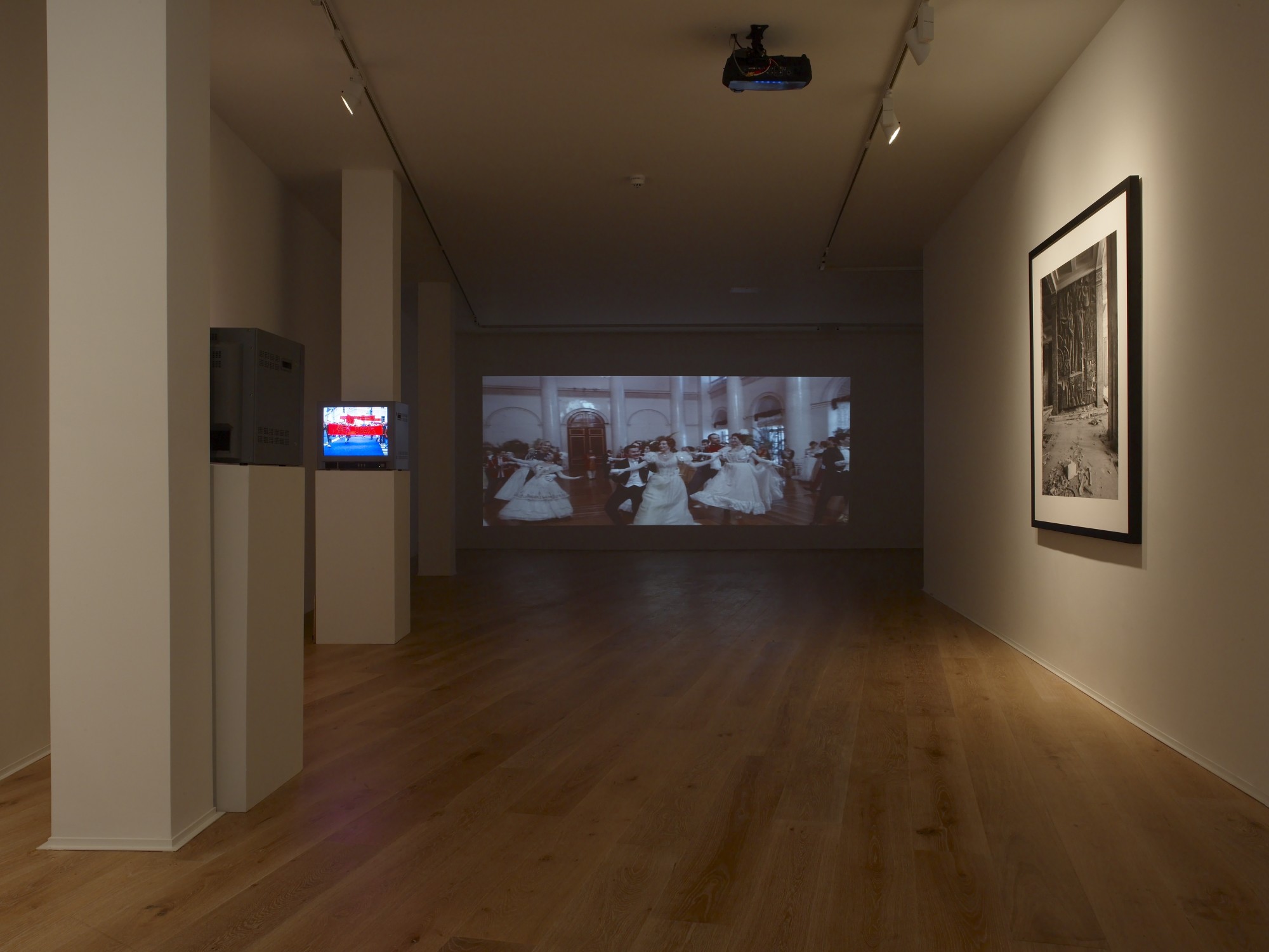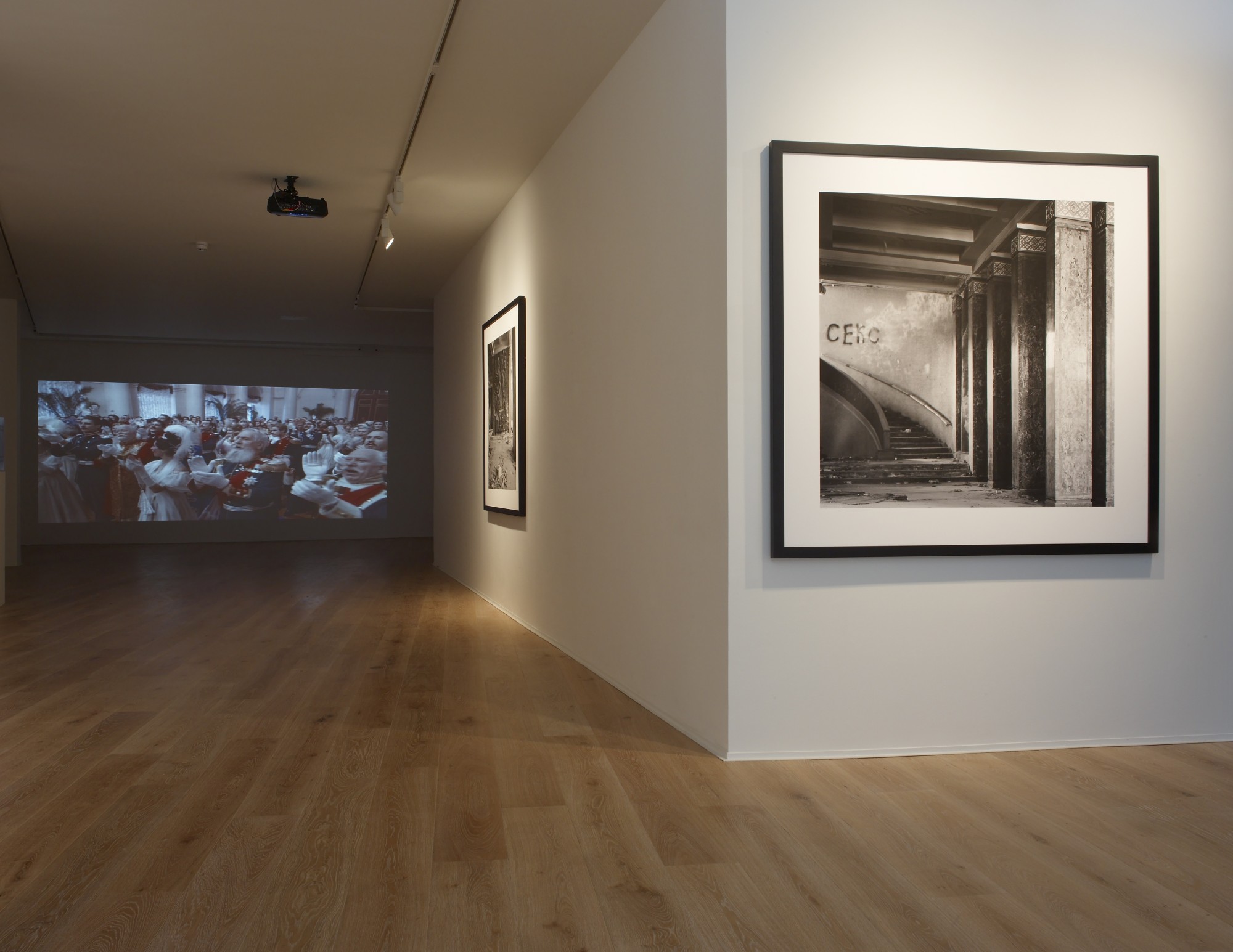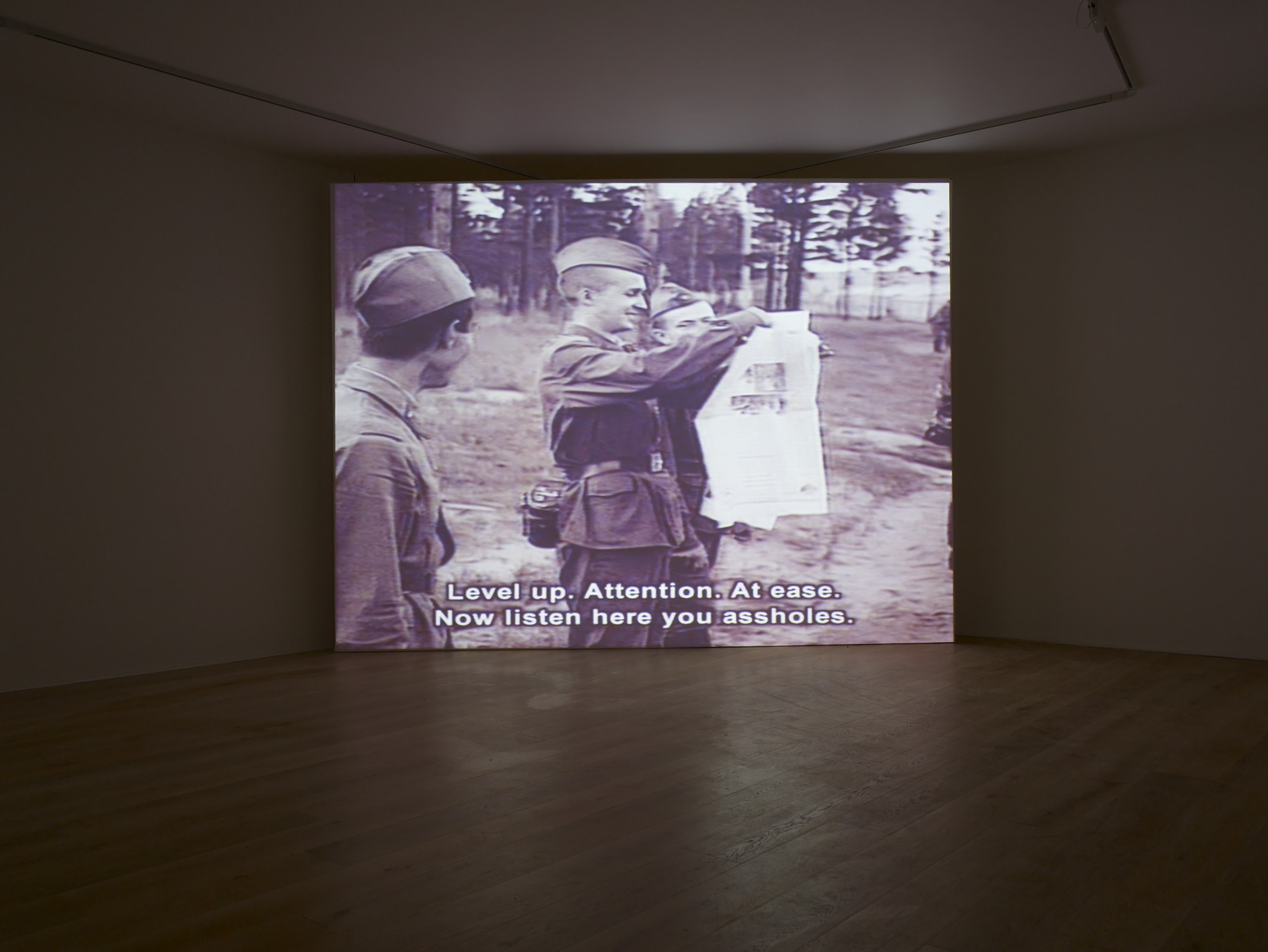Mark Nash is an independent curator and writer.
His formation was in film theory and film culture, editing Screen between 1977 and 1981. He has worked with Isaac Julien on several projects such as the film Frantz Fanon: Black Skin White Masks (1996) and the exhibition Reimagining October at Calvert 22. He collaborated with Okwui Enwezor on The Short Century exhibition and Documenta11. Most recently he has curated One Sixth of the Earth at ZKM.

-
Mark Nash
Non Aligned | Centre for Contemporary Arts Singapore
Third Way / After Bandung
7 April – 7 June 2020
Screening on loop during opening hours.
Single Screen
Curated by Mark Nash and Vladimir Seput
The programme featured films that engage with post-colonial processes covering different moments and geopolitical contexts. The Asian-African Conference in 1955, known as the Bandung Conference, amidst the complex processes of decolonization, established self-determination, non-aggression, and equality as part of the core values that then formed the Non-Aligned Movement. This history was unpacked and contextualised through the series of eleven screenings.
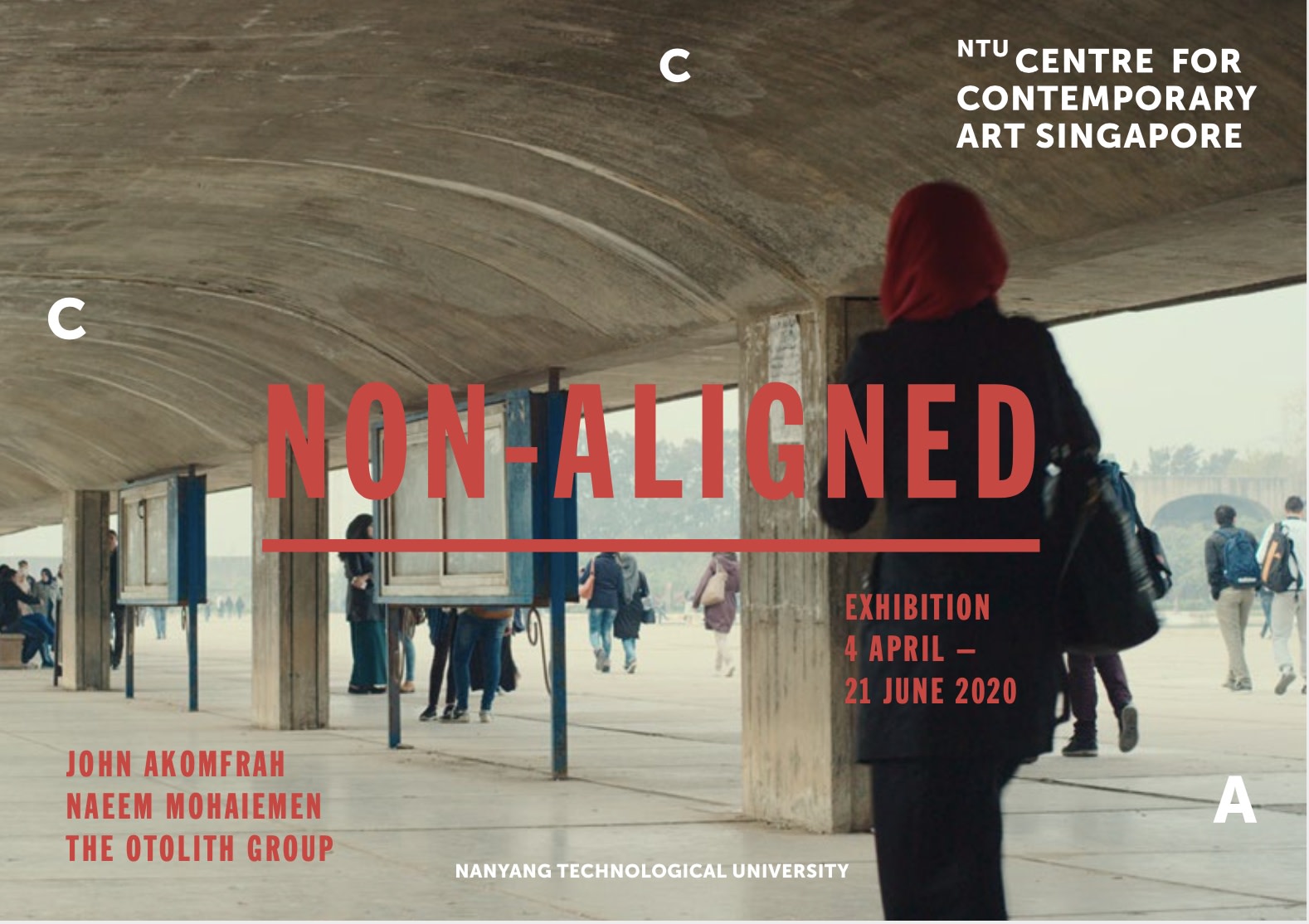
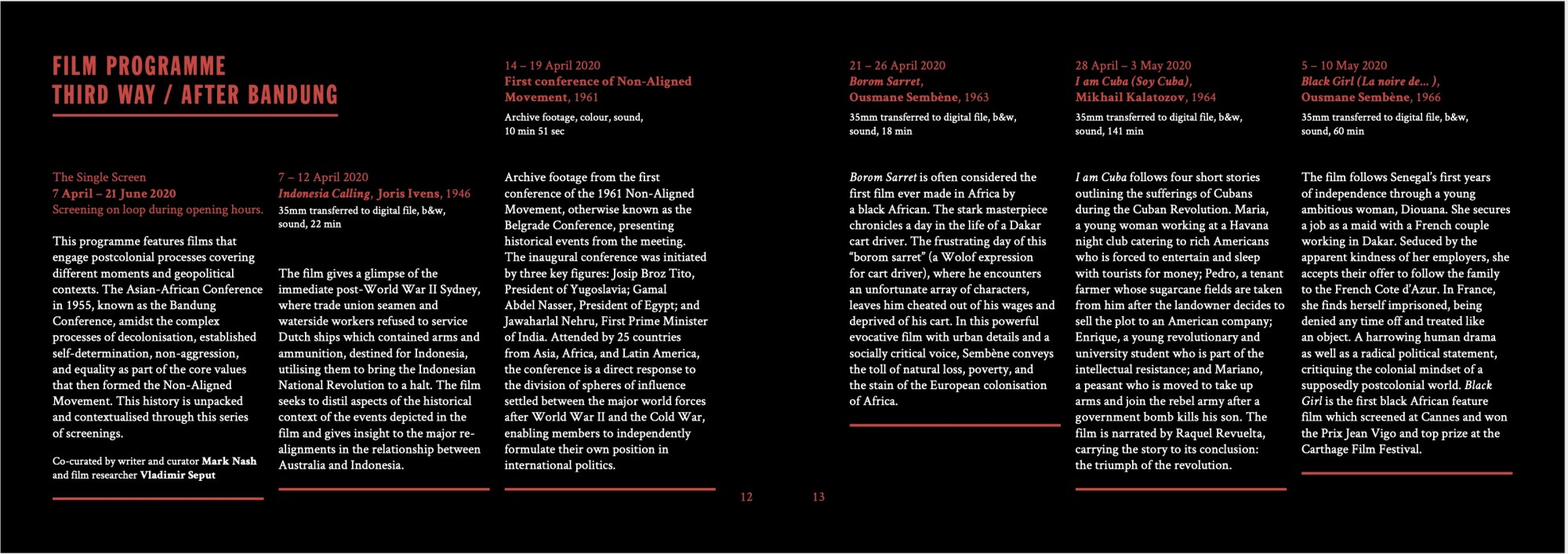
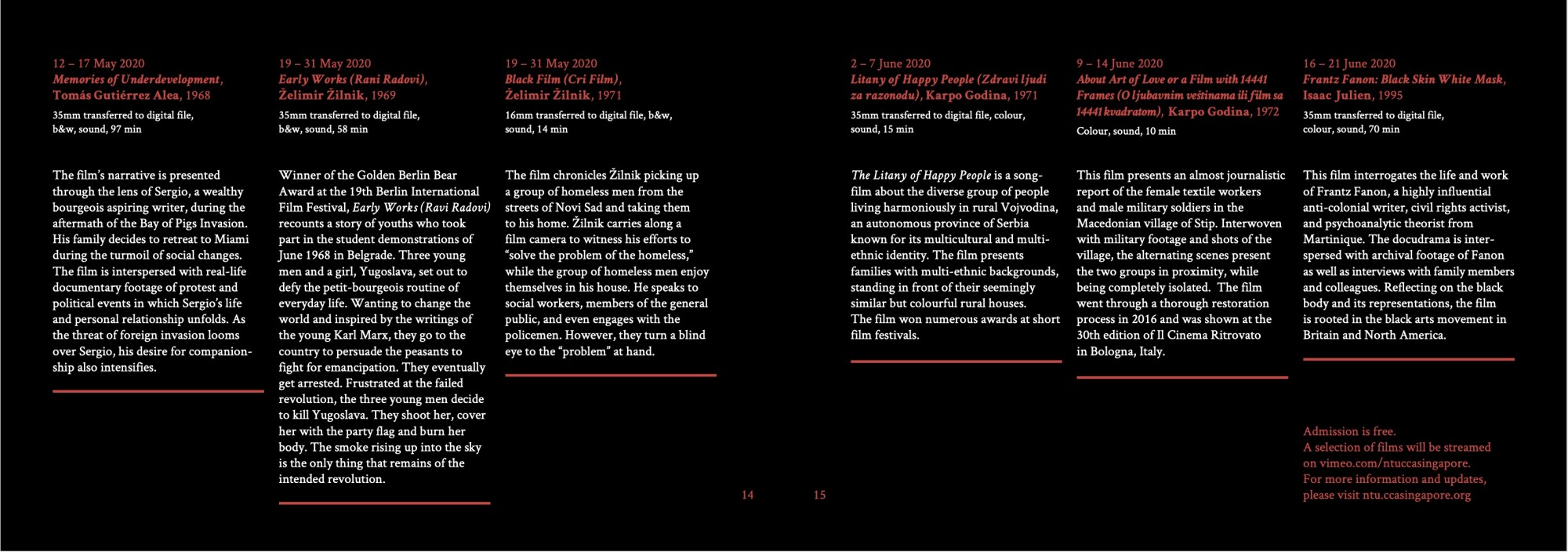



-
Mark Nash
The Shadow Never Lies
"The Shadow Never Lies" took place between April and July 2016 at the Shanghai 21st Century Minsheng Art Museum (M21). The international exhibition has been designed to show how concepts and their aesthetic preoccupations cross political
and cultural boundaries. It includes 34 different artists' works in photography, video, film, animation, painting, installation and performance.
The exhibition has been curated by Jiang Jiehong and Mark Nash.

Han Kyung Woo. Projected Specimen
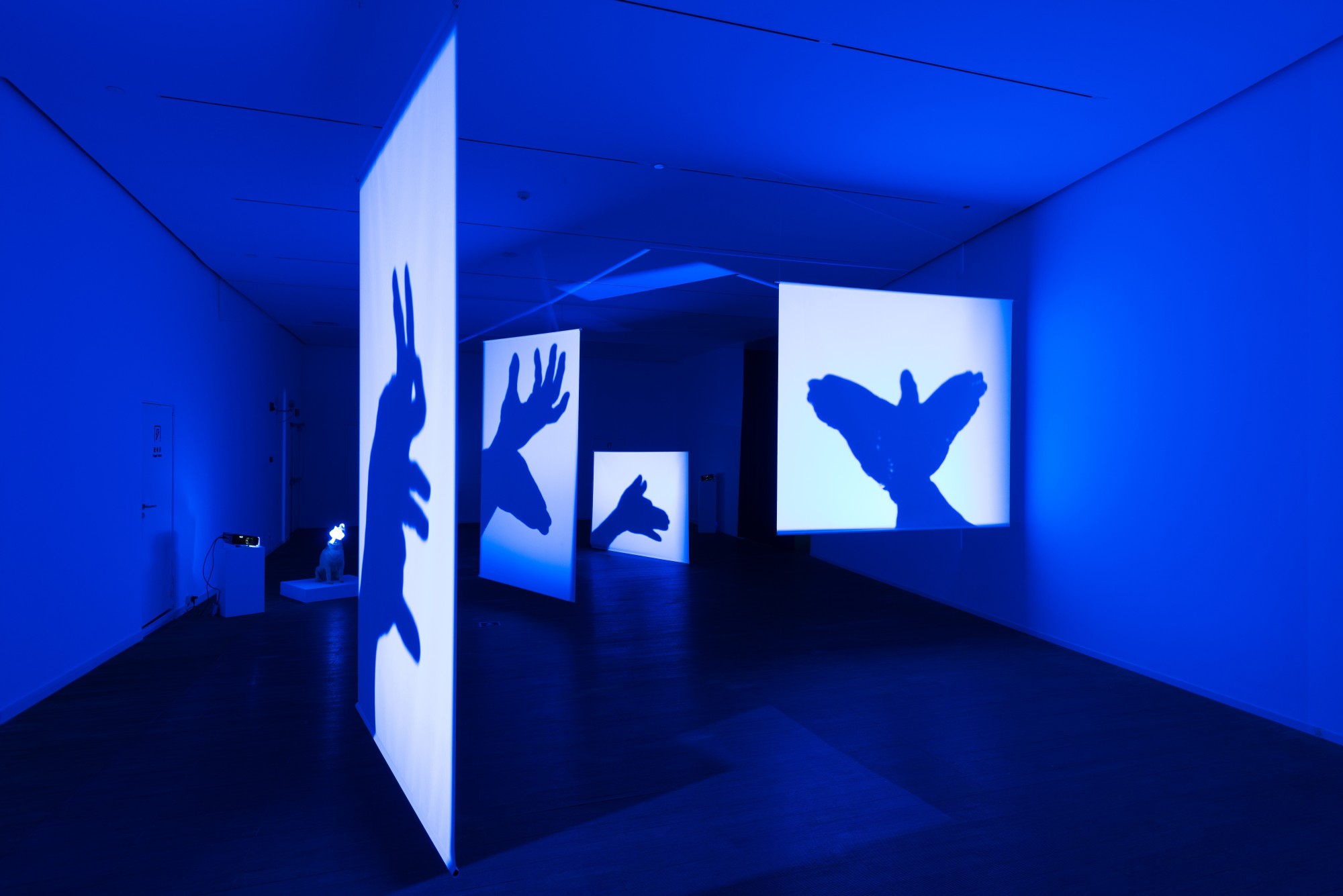
Han Kyung Woo. Projected Specimen
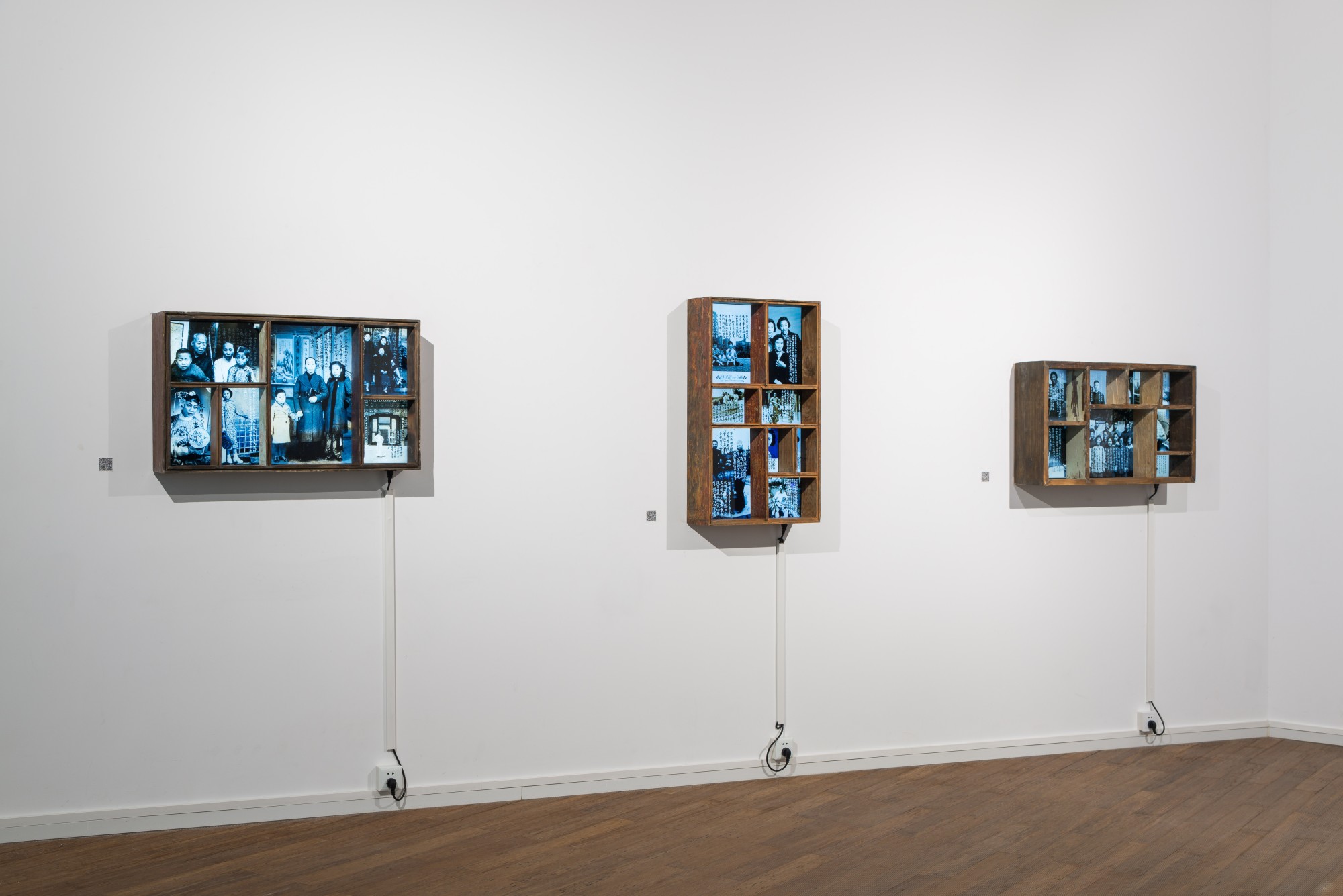
Hu Jieming. The Remnant of Images, 2013

Hu Jieming. The Remnant of Images, 2013

Hu Xiaoyuan. Ladders of the Heart

Hu Xiaoyuan. Ladders of the Heart

Hu Xiaoyuan. Ladders of the Heart

Daniel Boyd. A Darker Shade of Dark

João Maria Gusmão and Pedro Paiva. The Human Torch Left Turtle Right

Isaac Julien. Playtime

Lam Tung Pang. A Day of Two Suns

Lu Yang. The Cruel Electromagnetic Wave Above Absolute Zero

Lu Yang. The Cruel Electromagnetic Wave Above Absolute Zero

Joan Jonas. After Mirage

Jin Feng Syed

Jin Feng Syed

Miao Xiaochun. Samsara

Miao Xiaochun. Samsara

Poklong Anading. Anonymity

Takao Minami. Fire Symbol

Takao Minami. Fire Symbol

Takao Minami. Light Symbol

Takao Minami. Light Symbol

Takao Minami. Puppet Study

Shahzia Sikander. Parallax

Shahzia Sikander. Parallax

Wang Gongxin. It's About Ya

Wang Gongxin. It's About Ya

Wang Yuyang. Light 2

Wang Yuyang. Light 2

Willian Kentridge. Second Hand Reading

Willian Kentridge. Second Hand Reading

Takao Minami. Puppet Study

Zhang Peili. A Walk with an End in Sight

Zhang Peili. A Walk with an End in Sight

Zhang Peili. A Walk with an End in Sight

Zhang Peili. Birdtree

Zhang Peili. The Entryway of Hangzhou Parterre One Year Apart

Zhang Peili. Exhibition View

Zhang Peili. Exhibition View
-
Mark Nash
Red Africa: Things Fall Apart
The exhibition featured artists, filmmakers and groups from across Africa, Asia, Europe and North America. Drawing on film, photography, propaganda and public art, the exhibition presented interdisciplinary reflections on African connections to the Soviet Union and related countries.
Red Africa: Things Fall Apart was a touring exhbition presented at Calvert 22, London; Iwalehaus, Bayreuth; Galeria Avenida da Índia; and the Open Society Archives, Budapest.























-
Mark Nash
One Sixth of the Earth: Ecologies of Image
One Sixth of the Earth: Ecologies of Image presents art from the last decade from countries that were part of the former Soviet Union and Eastern Bloc. The main focus of this exhibition is on moving image work, the medium of choice of many contemporary artists, with which it develops a broad 'ecological' frame to present and contextualise a wide range of work from very diverse and different countries and cultures.
One Sixth of the Earth: Ecologies of Image understands ecology in the sense that French Psychoanalyst Felix Guattari develops in his essay 'The Three Ecologies' (1989), where he argues that the ecological dilemmas the world is currently facing can only be addressed by addressing human, societal and environmental ecologies as a totality. He also argues that art is one of the ways we can bring these three levels together: artists can be at the forefront of a new synthesis, and we can all learn from the experience of art in ways that can make our lives more balanced and less socially and ecologically disruptive.
This exhibition was curated by Mark Nash and commissioned by and presented at MUSAC from January 28th to June 3rd, 201; and at ZKM Karlsruhe from March 3rd to April 1st, 2013,
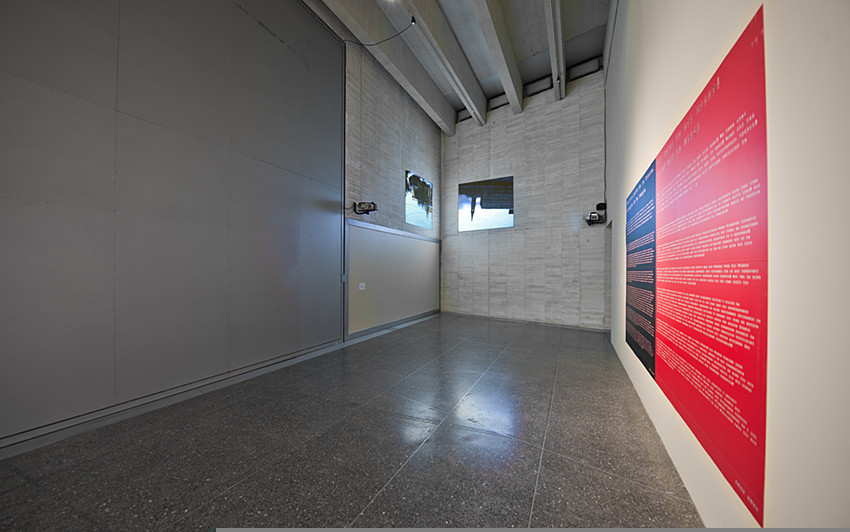
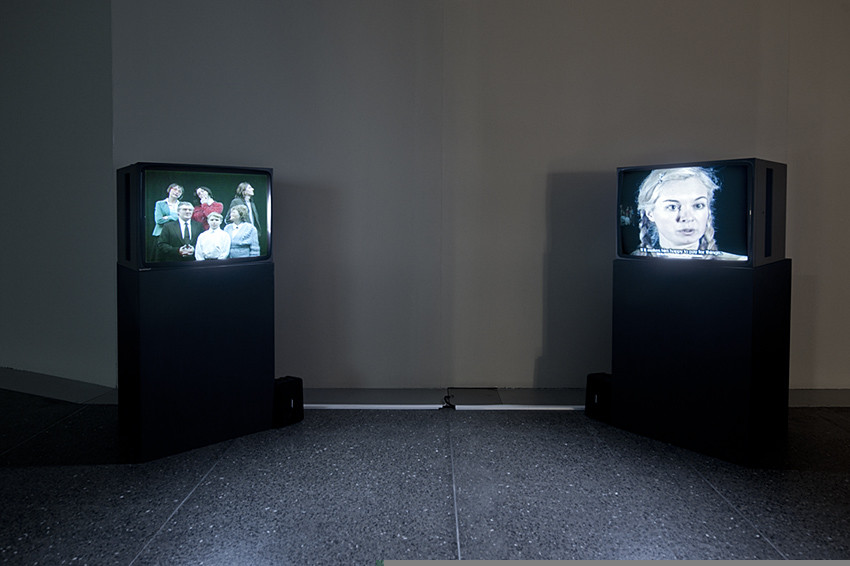
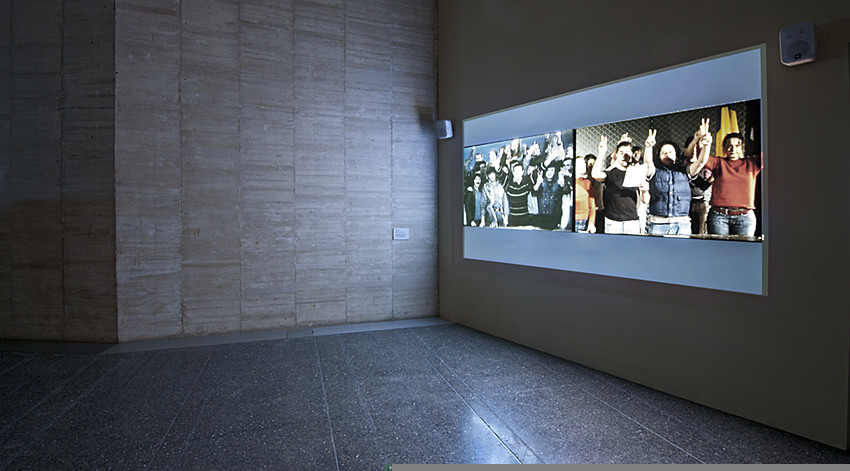





























-
Mark Nash
Reimagining October
Re-Imagining October originates from two very distinct starting points: firstly, Derek Jarman's film October, a work that both evokes the homophilic world of the Soviet military while alluding to the homosexuality of the groundbreaking Russian filmmaker Sergei Eisenstein, after whose seminal 1927 work October Jarman's film is named; and secondly, Abderrahmane Sissako's 1993 Octobre, a film that explores the social context surrounding an inter-racial relationship between an African student and his Russian girlfriend.
